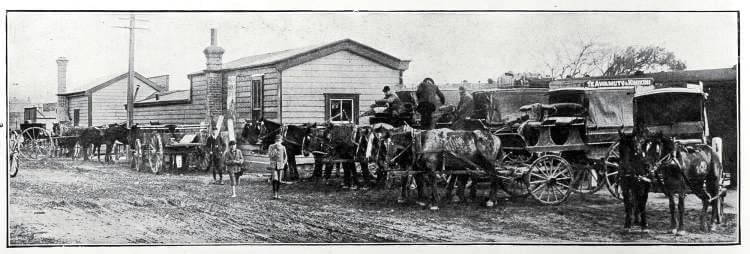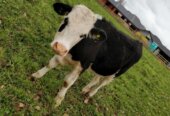Meghan Hawkes reports on headline news in Waipa – from 1909
Busy scene at Te Awamutu station, 1909
Recent railway reforms riled a passenger who, on arrival at the Te Awamutu train station, was accosted by the station master demanding sixpence for a box measuring less than two cubic feet, containing clothing and a few apples.
She informed him of its contents and pointed out the fact that the stationmaster where she and her husband had boarded the train did not charge for the box. The total weight of all their luggage was greatly under the regulation amount. Nothing was put on the box to show that sixpence had been paid for it. Her husband wrote at once to the traffic manager, Auckland, asking that the pennies might be refunded.
Seven weeks later a reply was received saying that the payment could not be returned, and that the stationmaster at Te Awamutu was only carrying out his instructions. When they travelled by rail again, they took a little box containing exactly six quinces. This the stationmaster would not pass, although he was told what it contained. By the same train, and to the same station, another passenger took a whole box of fruit, without being charged for it. At other stations fruit was taken aboard without being paid for. On their return journey the couple brought a case of apples with them. On arrival at Te Awamutu, they were charged sixpence for it, but for a tin containing 331b of honey, nothing was charged.
“I would suggest,” the husband fumed “that Minister for Railways direct that a list of articles to be paid for be printed in the penny timetable. To me it seems cutting matters very fine to charge sixpence for six quinces or a few apples in a small case containing clothing as well. But to allow full cases of fruit to pass without charge shows great laxity on the part of the railway officials, and the need of a strong hand to reform matters.”
The Pirongia waters were praised as the perfect habitat for trout, both the brown and rainbow varieties. The shady pool, the rapids, intensely cold water, and the tributaries of the Waipā straight out of the ranges were all to be found in the Pirongia streams. Ease of access, medium depth, and occasional patches of sheltering bush – no waters in the world could be better adapted.
To lovers of the picturesque, a month’s angling on any of the Waipā’s tributaries was a delightful experience. Every bend in the river presented a new panorama of surpassing beauty, and no sportsman who had once visited Pirongia rod in hand failed to make it his angling ground on subsequent excursions.
Messrs Corcoran Bros, of Harapepe, installed on their farm a hydraulic vacuum pump, which was to work a milking machine. The machine was very simple in construction and easily understood – a stream of water being all that was required to work it. It could be operated at any distance from the shed, and consequently there was no noise to disturb the cows during milking. A trial spin gave the utmost satisfaction, the pump doing all that had been claimed. Messrs Corcoran Bros deserved great credit for taking this lead in the district in abolishing the hand milking drudgery, and it was hoped that they would meet with the success that they deserved.










